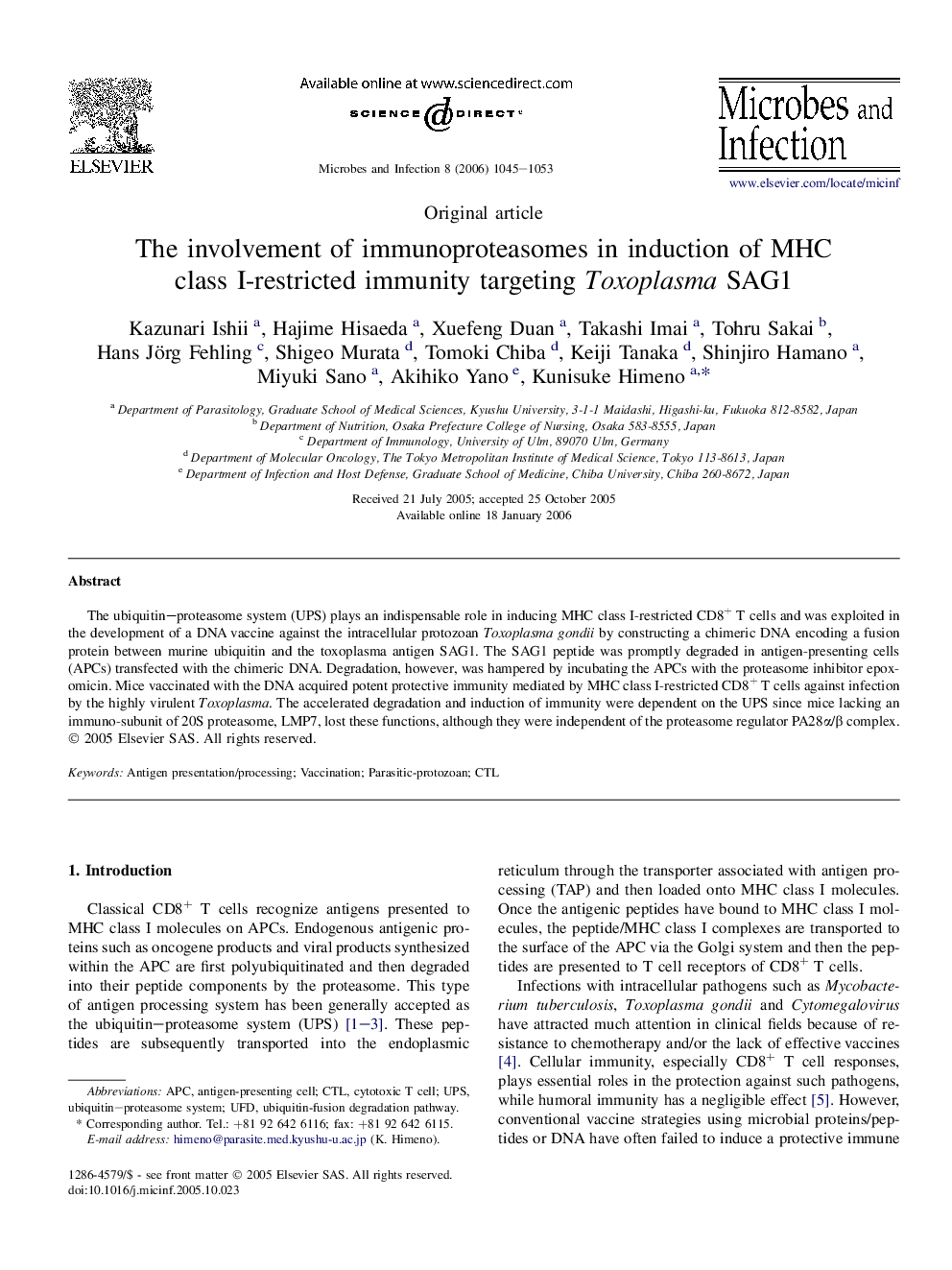| Article ID | Journal | Published Year | Pages | File Type |
|---|---|---|---|---|
| 3416071 | Microbes and Infection | 2006 | 9 Pages |
The ubiquitin–proteasome system (UPS) plays an indispensable role in inducing MHC class I-restricted CD8+ T cells and was exploited in the development of a DNA vaccine against the intracellular protozoan Toxoplasma gondii by constructing a chimeric DNA encoding a fusion protein between murine ubiquitin and the toxoplasma antigen SAG1. The SAG1 peptide was promptly degraded in antigen-presenting cells (APCs) transfected with the chimeric DNA. Degradation, however, was hampered by incubating the APCs with the proteasome inhibitor epoxomicin. Mice vaccinated with the DNA acquired potent protective immunity mediated by MHC class I-restricted CD8+ T cells against infection by the highly virulent Toxoplasma. The accelerated degradation and induction of immunity were dependent on the UPS since mice lacking an immuno-subunit of 20S proteasome, LMP7, lost these functions, although they were independent of the proteasome regulator PA28α/β complex.
